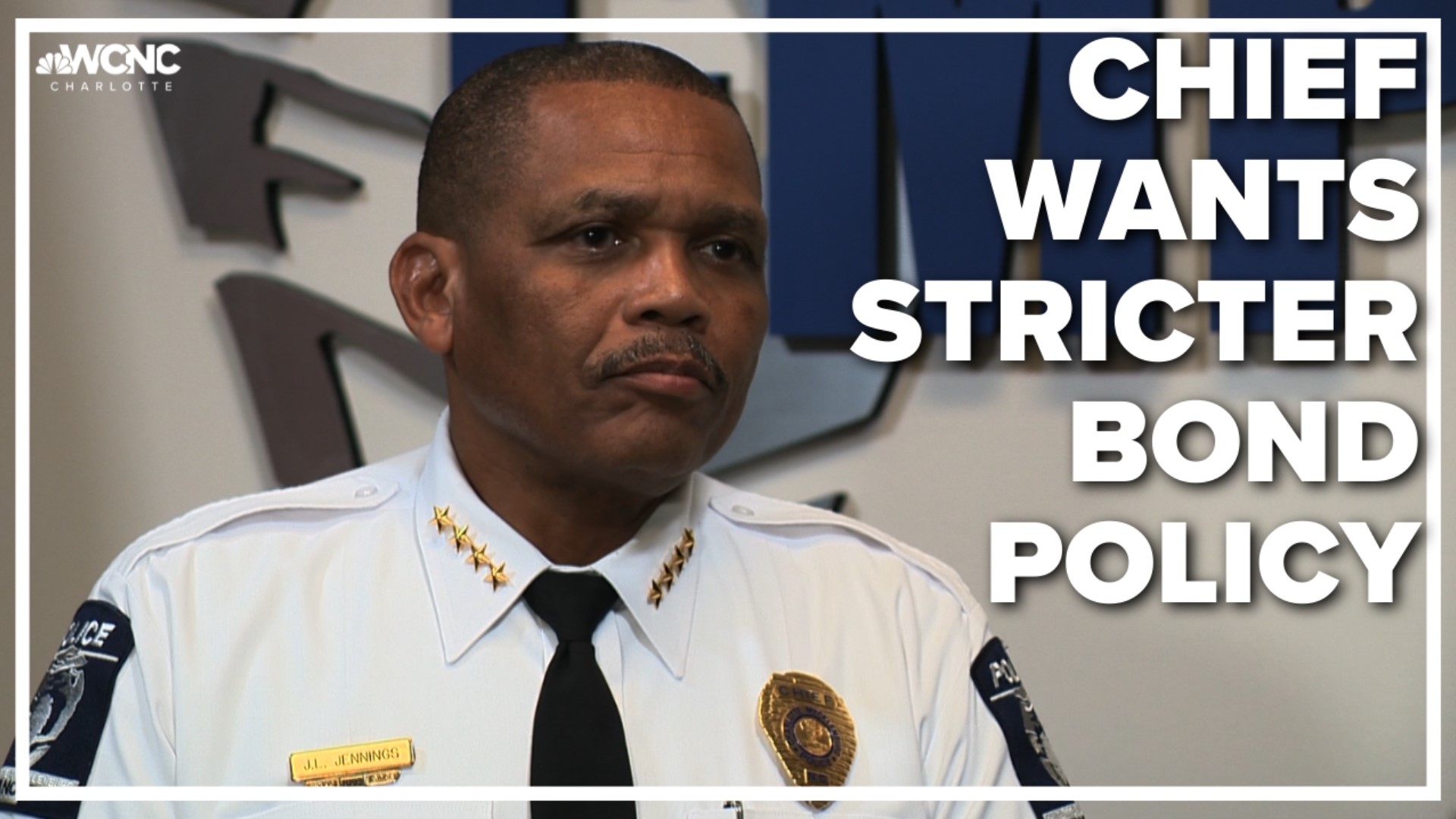CHARLOTTE, N.C. — Charlotte-Mecklenburg Police Chief Johnny Jennings wants a change in state law to keep violent criminals from bonding out of jail and going back on the streets.
In an interview with WCNC Charlotte, Jennings outlined he's had discussions with law enforcement and other local leaders across the state about the lack of guidelines North Carolina provides judges and magistrates to set bonds for defendants.
"I don't blame the magistrates individually," Jennings said. "I blame the system because they need to have those guidelines to say that, 'OK, we have somebody who was shot... I should have a minimum that says that I cannot legally set a bond low enough that this person can simply walk out the door before the officer finishes his paperwork.'"
Most recently, Jennings publicly expressed his frustration after a Mecklenburg County magistrate set a $170,000 bond for Toddrick McFadden. McFadden was accused of a slew of charges, including shooting and injuring a CMPD officer.
Jennings said he's been upset about low bonds in other criminal cases, but he pointed to the McFadden case as the tipping point for him to speak up.
"When you look at someone who just shot a police officer and shot at another officer and shot into an occupied business, how is that opportunity to get out of jail so low?" Jennings said. "For me, it did not sit well and it did not sit well with law enforcement not just in Charlotte but across the state."
A county judge later raised McFadden's bond and the accused shooter has still not bonded out of jail.
In North Carolina, magistrates set bonds based on two main factors, according to Chris McCartan, a Cabarrus County defense attorney:
- How likely is a defendant to show up for future court dates?
- Is the defendant a danger to the public?
North Carolina law notes magistrates get the first chance to set a defendant's bond. It usually happens within 24 to 48 hours of an arrest.
Each district court in the state has different guidelines, if at all, for how much a bond should be depending on the charge.
Offenses like shooting at a police officer might garner a higher bond than other charges.
But magistrates can make their own decisions, McCartan said.
"These are a decent place to start, considering the nature of the offense, considering the prior record level, things like that," McCartan said. "A magistrate has broad discretion."
Jennings said there are current discussions about making changes to state law. He didn't provide WCNC Charlotte with an example of a state that has a good model.
"I think we're at a point now, a tipping point, to where there's a lot of conversation that is concerning that we really need to start making some moves and we need to make some reform when it comes to that," Jennings said. "We all hold that responsibility to keep our community safe."
Jennings acknowledged there are extremes on the other end of the spectrum when some defendants are held on too high of bonds for lower crimes.
"We do we get surprised by how high some of more, some of them I think, are right on target, and some of them are way too low," Jennings said. "And so we want to be able to stop that fluctuation of where that bond's gonna land when someone gets arrested for violent crime."

